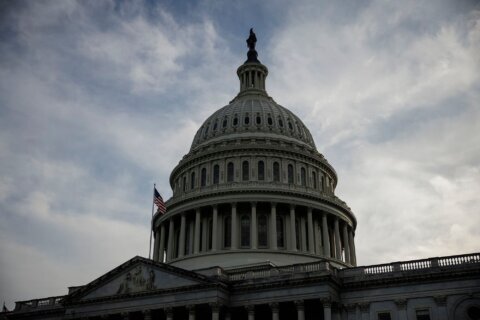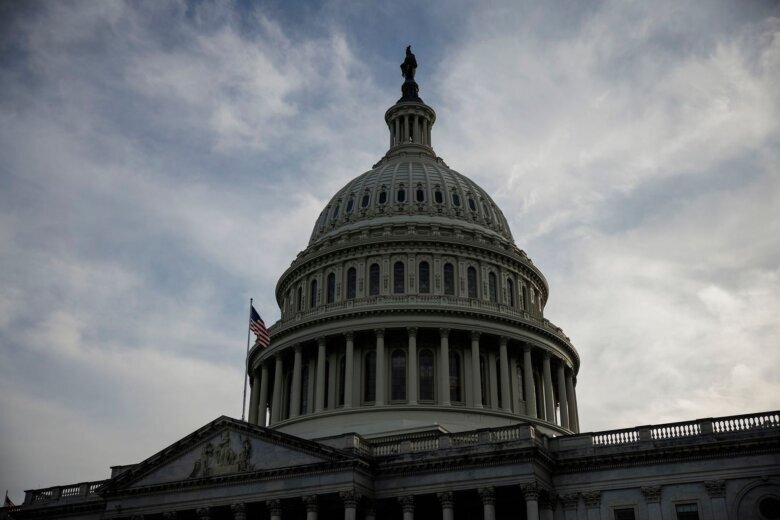
New York (CNN Business) — The Covid-19 pandemic exposed glaring weaknesses in America’s medical supply chains, causing a frantic scramble for masks, respirators and other gear needed to fight the virus.
In the years since, Americans have faced periodic shortages of antibiotics, common pain relievers, baby formula and key components needed for CT scans.
Now, a bipartisan effort in Congress is attempting to boost medical supply chain resilience and ease the country’s reliance on less friendly nations like China for critical medical supplies – before the next disaster strikes.
Democratic Sen. Tom Carper and Republican Sen. Thom Tillis plan to introduce new legislation on Thursday that would empower the White House to negotiate trade deals on medical goods and services, CNN has learned.
The bipartisan legislation would give President Joe Biden new targeted authority to enter into trade agreements and reduce tariffs and nontariff barriers like quotas for medical goods with America’s “trusted trade partners,” according to a draft of the bill.
Cutting red tape on medical goods imports
The legislation, called the Medical Supply Chain Resiliency Act, does not explicitly exclude China but says “trusted” countries are ones that have a demonstrated commitment to global health security, the rule of law and transparency.
The bill aims to improve supply chain resilience by giving the White House the ability to diversify and expand supply networks while simultaneously eliminating unneeded trade barriers.
“The pandemic wreaked havoc on our communities and caused our medical supply chains to break down during the worst possible time,” Carper, who chairs the Subcommittee on International Trade, Customs and Global Competitiveness, said in a statement to CNN. “We must prevent these same horrible losses from happening again by working together to fix our broken supply chains and better prepare for future public health emergencies.”
‘Now is the time’
The 2020 shortages of masks, hospital gowns, gloves, goggles and other personal protective equipment (PPE) were only the most blatant example of a decades-long weakness in medical supply chains that have become reliant on foreign countries for key supplies. During times of stress, those supply lines are vulnerable to breakdown.
“Countries that have under-invested in the resilience of their supply chains, like the United States and many other world countries, struggled to obtain the necessary medical products to combat COVID-19, a situation which placed all patients at risk, even those with unrelated conditions,” according to a 2022 report by the National Academies of Sciences, Engineering and Medicine (NASEM).
The legislation co-sponsored by Tillis and Carper would authorize the president to “negotiate, enter into and enforce” a trusted trade agreement related to medical goods when such a deal would “contribute to the national security and public health of the United States.”
That power would include the ability to adjust existing duties to get trade deals done. The bill calls for robust congressional oversight and consultation.
“Now is the time to address the long-standing shortcomings in our supply chains that were highlighted over the pandemic, repair the damage done, and ensure America is adequately prepared for future national security and public health threats,” Tillis said in a statement to CNN.
Reliance on China
The legislation cites World Trade Organization data that finds more than half of America’s imports of Covid-19 critical goods came from just three partners: China (30.6%), Mexico (15.3%) and Malaysia (9%).
This situation has contributed to rising drug shortages in the United States. A Senate report published earlier this year found that almost 80% of the manufacturing facilities that produce active pharmaceutical ingredients are located outside the United States.
The healthcare industry relies on China and other countries for other key supplies, too.
Last year, a GE Healthcare factory in Shanghai was shut down amid that city’s two-month “zero-Covid” lockdown. That shutdown caused a shortage of a key component for crucial imaging tests such as CT scans, leading US hospitals to ration supplies and causing a backlog of patients.
Earlier this month, the White House hailed the end of the supply chain nightmare that had sent consumer prices surging and left some store shelves empty.
The administration released a scorecard that indicated dozens of recommendations from a 2021 supply chain review have been implemented, including some related to strained medical supply chains.
For instance, the Department of Health and Human Services has invested more than $500 million toward developing innovative domestic manufacturing for active pharmaceutical ingredients.
That is a step towards the 2021 review’s recommendation for officials to invest in the development of new pharmaceutical manufacturing and processes.
Onshoring is ‘difficult and expensive’
Likewise, the White House said the United States Trade Representative’s Supply Chain Trade Task Force is working with “like-minded partners” to facilitate trade in safe and effective medicine, minimize drug shortages and secure “smoother movements of essential products.”
The pandemic has helped set the stage for a US manufacturing boom as some companies move to “onshore” key supply chains.
However, the 2022 NASEM report warned that while onshoring manufacturing may appear to be a “simple fix” to supply chain disruptions, onshoring every step of a “long, complex supply chain is likely to be difficult and expensive.”
Instead, the report called for “international cooperation” and an agreement by major exporters of medical products to avoid export bans or face sanctions and to refrain from relying too much on a single location or a single producer for key products and components.
“Insufficiently resilient medical product supply chains pose risks not only to public health but also to national security,” the NASEM report said.
The-CNN-Wire
™ & © 2023 Cable News Network, Inc., a Warner Bros. Discovery Company. All rights reserved.








